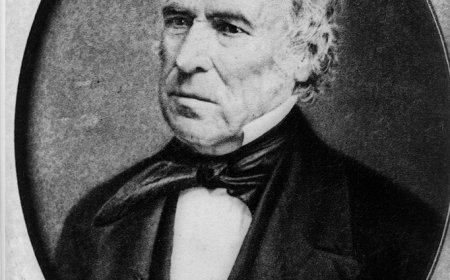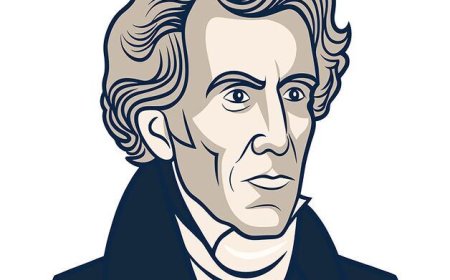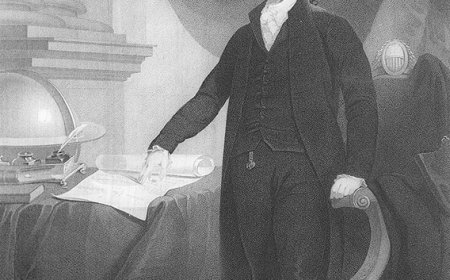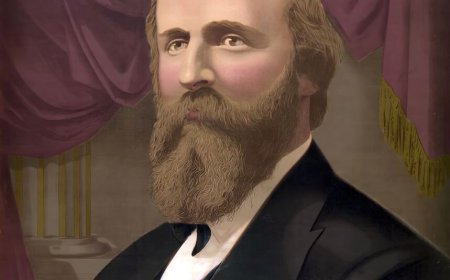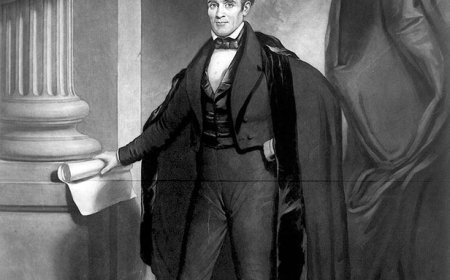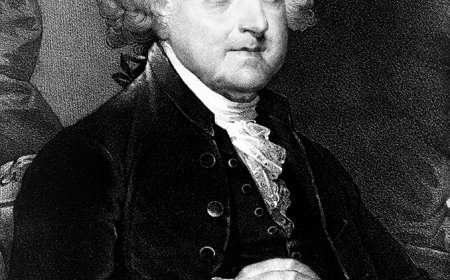James Buchanan Biography for Students | The President Before the Civil War
Learn about James Buchanan, the 15th President of the United States. Discover how his presidency failed to prevent the Civil War and why he is often ranked among the worst U.S. presidents—plus vocabulary, fun facts, a quiz, and a kid-friendly summary.
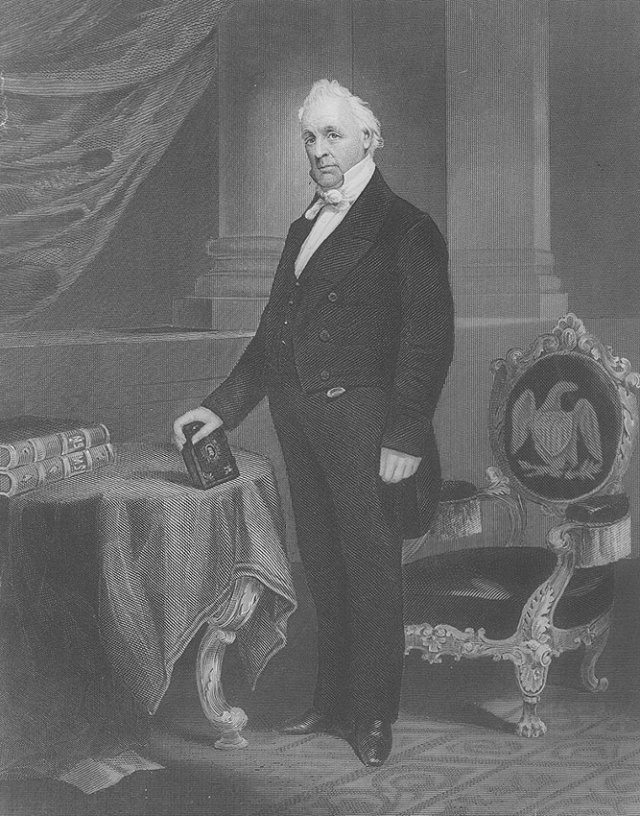
🇺🇸 James Buchanan Biography for Students | The President Before the Civil War
🧭 Introduction
James Buchanan was the 15th President of the United States, serving from 1857 to 1861. He is often remembered as the president who failed to stop the country from falling apart. During his time in office, the nation was more divided than ever over slavery, and just weeks after he left the White House, the Civil War began. Though Buchanan had a long and respected political career, many historians believe his inaction during a national crisis made things worse.
👶 Early Life and Education
James Buchanan was born on April 23, 1791, in Cove Gap, Pennsylvania. He was one of 11 children in a wealthy and well-educated family. He attended Dickinson College and later studied law.
Buchanan became a lawyer and quickly entered politics. He never married and remains the only U.S. president who was a lifelong bachelor. He was known for being formal, cautious, and deeply devoted to the Constitution.
🏛 Political Career Before Presidency
Before becoming president, Buchanan had a long and impressive political resume. He served as:
- State legislator in Pennsylvania
- U.S. Representative
- U.S. Senator
- Secretary of State under President James K. Polk
- Minister (Ambassador) to Russia and later Great Britain
Buchanan was experienced in both foreign and domestic politics. As ambassador to Britain, he helped negotiate the Ostend Manifesto, which proposed buying Cuba from Spain to expand U.S. territory—a plan that became very controversial.
🇺🇸 Presidency Overview
Buchanan was elected president in 1856 as a Democrat. He won by promising to bring calm to the country, which was deeply divided over the expansion of slavery into new states and territories. Unfortunately, his time in office did the opposite.
Major events during his presidency included:
- The Dred Scott decision by the Supreme Court
- The crisis in Kansas, where pro- and anti-slavery settlers clashed
- The growing power of the new Republican Party, which opposed slavery
- Rising talk of Southern secession (leaving the Union)
Buchanan believed the federal government could not stop states from seceding, and he did very little to prevent it. Many people in the North saw him as too friendly with Southern slaveholders.
⚖️ Domestic Issues and the Slavery Debate
One of the biggest events during Buchanan’s presidency was the Dred Scott v. Sandford (1857) decision. The Supreme Court ruled that:
- African Americans could not be U.S. citizens
- Congress could not ban slavery in the territories
Buchanan supported this ruling, hoping it would settle the slavery debate, but instead, it made things worse. Many in the North were outraged, and the Republican Party grew stronger.
Other domestic challenges:
- “Bleeding Kansas” continued with violent battles over slavery
- Buchanan supported a pro-slavery constitution in Kansas, even though most settlers opposed it
- The Panic of 1857, a financial crisis, caused economic trouble, and Buchanan did little to help
His actions (and inaction) caused many Americans to lose trust in the government.
🌍 Foreign Policy and Global Relations
Buchanan had more success with foreign policy than at home. He:
- Strengthened U.S. trade with Asia and Latin America
- Supported the expansion of U.S. territory, though without military force
- Maintained peaceful relations with Britain and France
Still, foreign affairs were not the focus of his presidency. Most attention was on the growing crisis at home.
🧾 Legacy and Historical Impact
James Buchanan is often ranked as one of the worst U.S. presidents, mostly because he failed to act during the nation’s most serious crisis. His legacy includes:
- Doing little to stop the Civil War, even when states started to leave the Union
- Supporting court decisions and laws that favored slavery
- Believing too strongly in the Constitution’s limits instead of strong leadership
Buchanan refused to run for re-election in 1860. After he left office, Abraham Lincoln became president, and the Civil War began just weeks later.
👨👩👧 Personal Life and Family
James Buchanan was engaged once, but his fiancée died suddenly, and he never married. He was very close to his niece, Harriet Lane, who served as First Lady during his presidency.
Buchanan lived quietly after his presidency in Wheatland, his estate in Pennsylvania. He wrote a book defending his actions as president. He died on June 1, 1868, at the age of 77.
💬 Famous Quotes
“I acknowledge no master but the law.”
Buchanan strongly believed that the Constitution and laws should be followed exactly—even when urgent action was needed.
“Whatever the result may be, I shall carry to my grave the consciousness that I at least meant well for my country.”
This quote shows Buchanan’s belief that his actions were honest, even if they didn’t work out.
💡 Interesting Facts About James Buchanan
- He was the only bachelor president.
- His niece, Harriet Lane, was one of the most popular First Ladies of the time.
- He believed the president should not interfere with Congress or the courts.
- He was the last president before Abraham Lincoln.
- He owned slaves at one point, though he claimed to personally oppose slavery.
📚 Vocabulary Words
| Word | Definition |
|---|---|
| Secession | When a state leaves the country, as Southern states did before the Civil War |
| Dred Scott Decision | A Supreme Court case that ruled African Americans could not be citizens |
| Bleeding Kansas | Violent conflict in Kansas over whether slavery would be allowed |
| Constitution | The system of laws and principles that guide U.S. government |
| Panic of 1857 | A financial crisis that caused banks and businesses to fail |
👧 Kid-Friendly Summary
James Buchanan was the 15th president of the United States. He had lots of experience in government but made big mistakes when the country was in trouble. He didn’t do much to stop states from leaving the Union, and people blamed him for not preventing the Civil War. Even though he was smart and tried to follow the law, he didn’t take action when the country needed a strong leader. He is remembered for not doing enough when America was falling apart.
✅ Interactive Quiz
Q1: What number president was James Buchanan?
A. 14th
B. 15th ✅
C. 16th
D. 17th
Q2: What happened just after Buchanan left office?
A. World War I began
B. The Constitution was written
C. The Civil War began ✅
D. The Great Depression started
Q3: What Supreme Court case did Buchanan support?
A. Brown v. Board
B. Roe v. Wade
C. Marbury v. Madison
D. Dred Scott v. Sandford ✅
Q4: What party did James Buchanan belong to?
A. Republican
B. Whig
C. Democratic ✅
D. Federalist
Q5: Who became president after Buchanan?
A. Franklin Pierce
B. Abraham Lincoln ✅
C. Andrew Johnson
D. Ulysses S. Grant
Scoring:
5/5 = ⭐ Buchanan Brainiac
3–4 = 👍 Solid Work
1–2 = 📘 Time for Review




















































